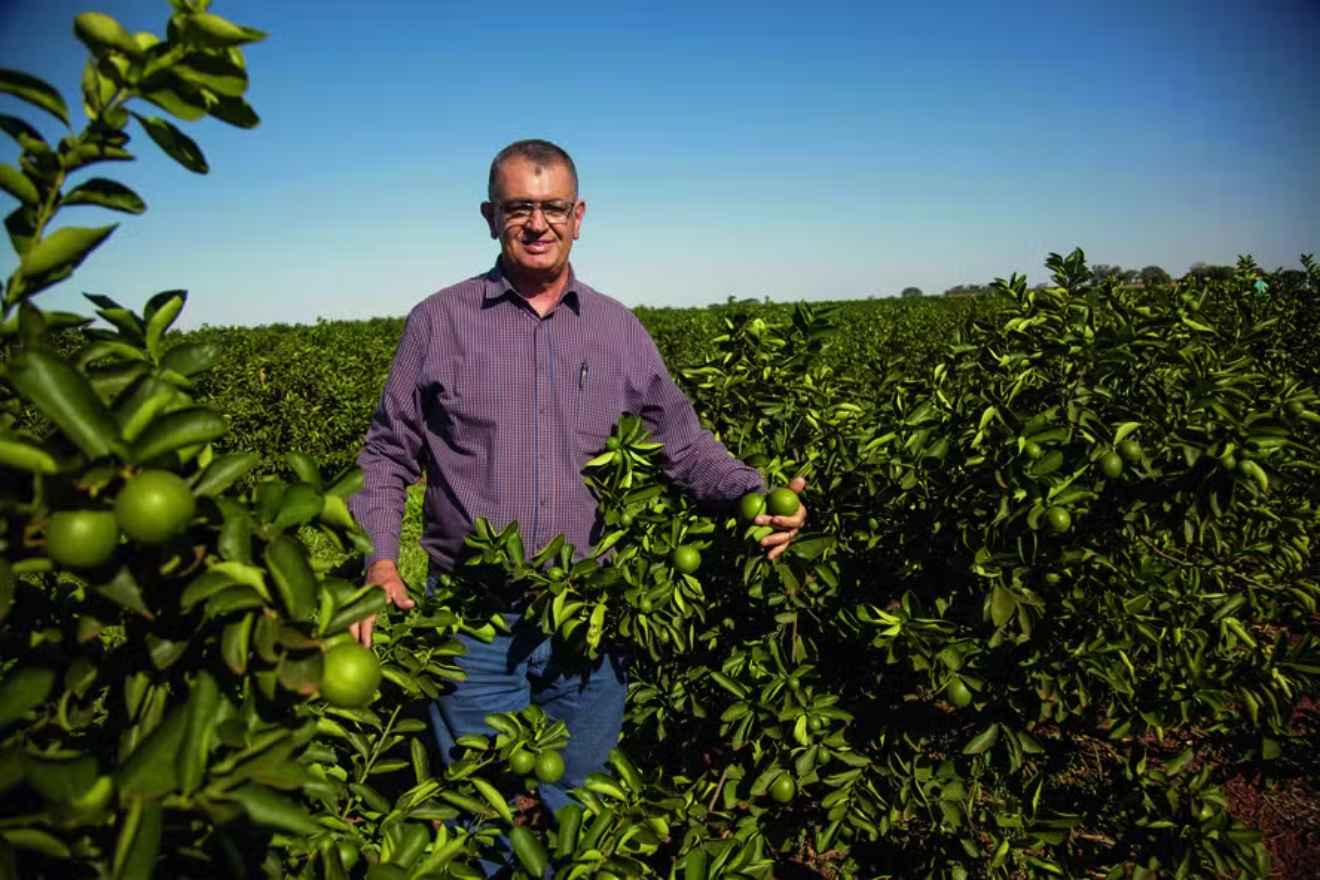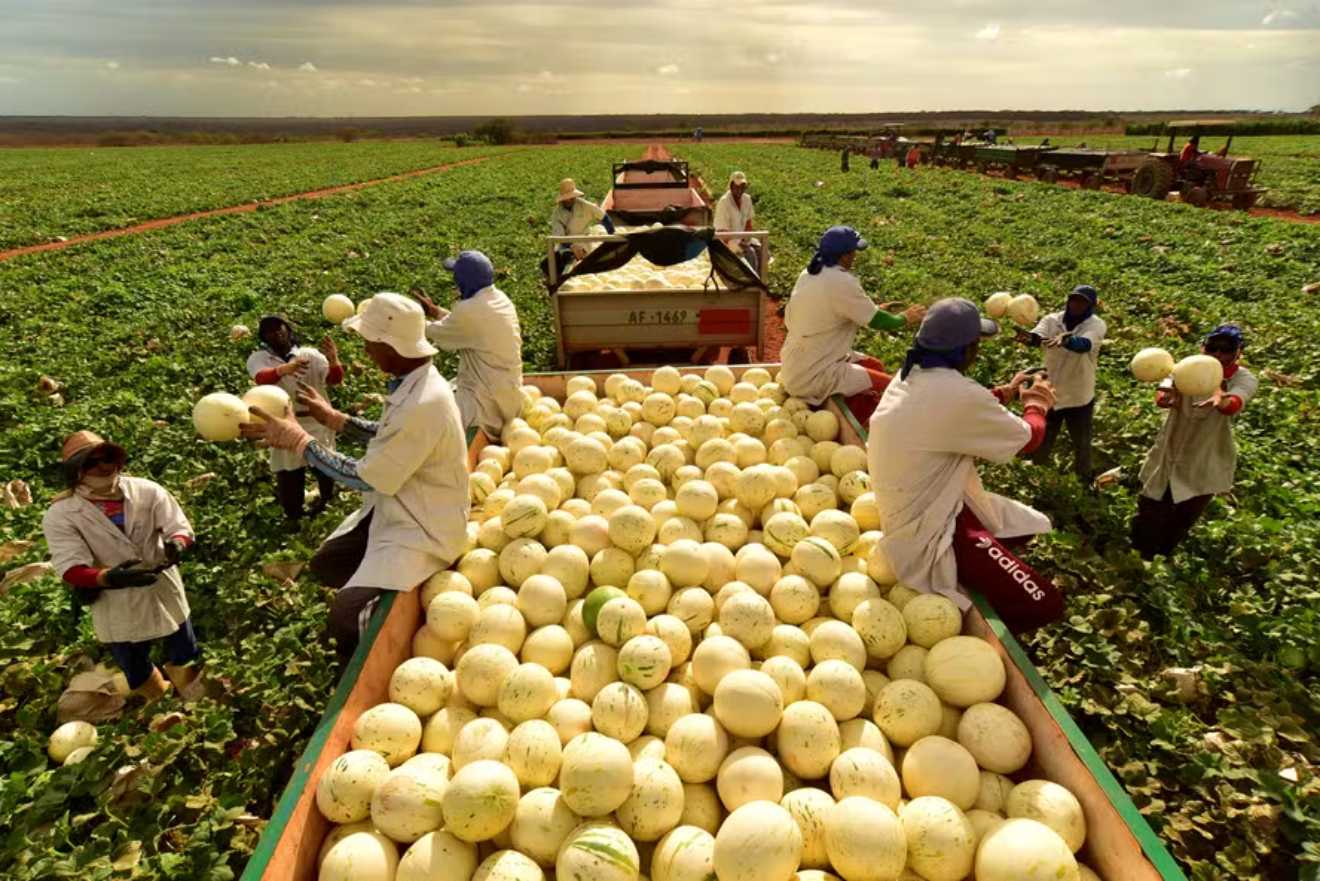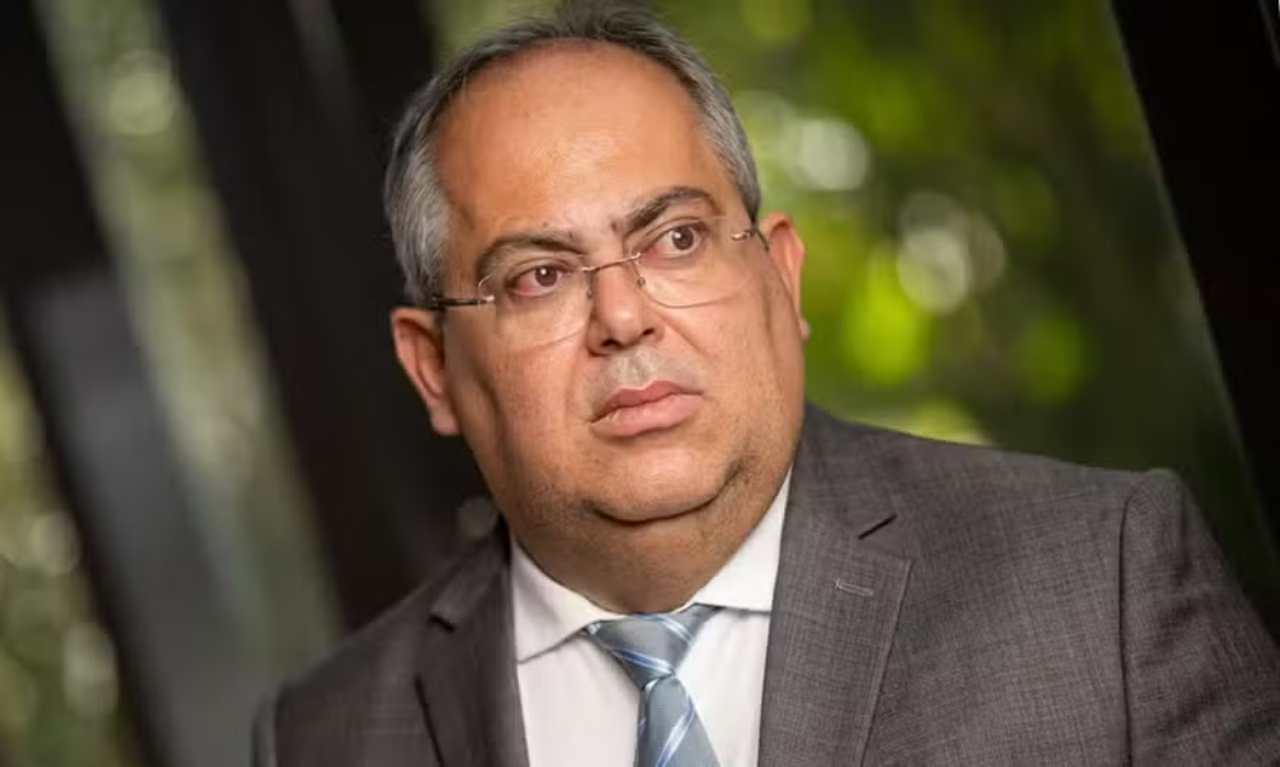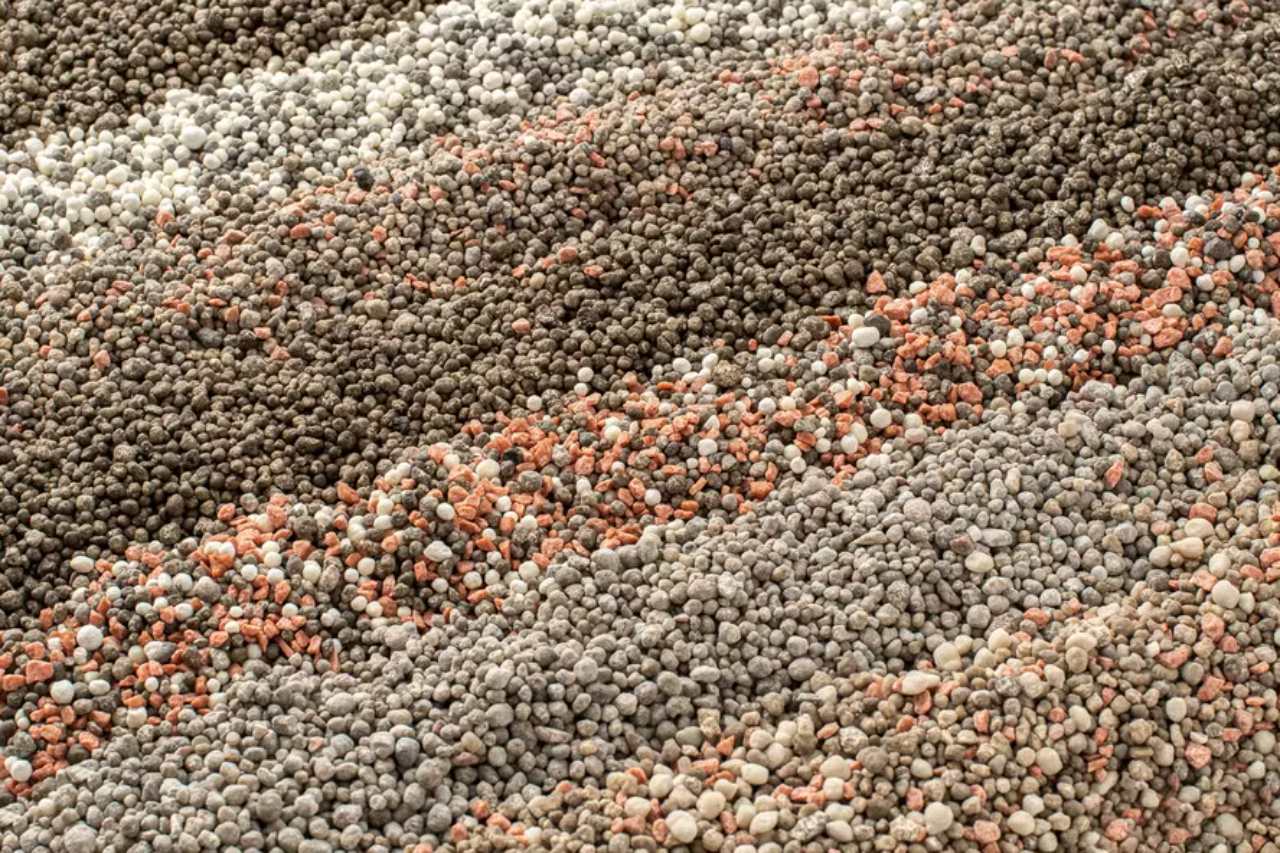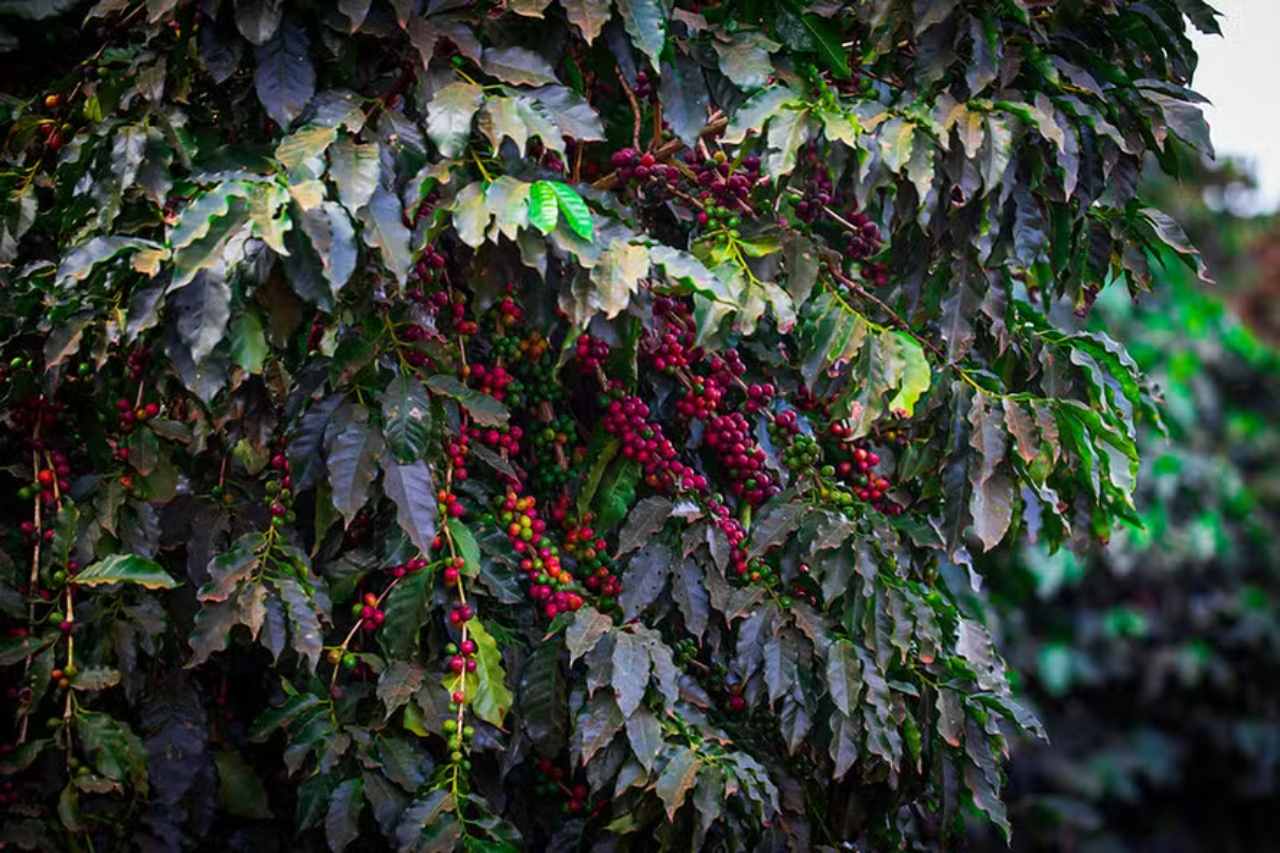Ernestino da Costa Mello and His Family Expect to Harvest 30,000 Tons This Year
In 1985, Ernestino da Costa Mello, his wife Alacir, and their two sons, Edvaldo and Everaldo, arrived in Paranapuã—a town located in the far north of São Paulo state—with a tractor, a VW Beetle, 20 head of cattle, and a great deal of determination. The family had been growing onions in Monte Alto (SP), nearly 300 kilometers away, when they decided to relocate and plant lemons in their new town.
Their plan was to take advantage of the growing citrus industry in Brazil, which had surged after severe frosts had devastated citrus plantations in Florida, USA—then the world’s largest citrus-producing region.
Nearly four decades after stepping out of that Beetle, the Costa Mello family has become the largest producer of Tahiti lemons (also known as Persian limes) in the country. Their production spans 900 hectares, with another 100 hectares hosting growing plants. “Lemon farming used to be associated with small plots,” says Edvaldo, the eldest son, who dropped out of law school at age 17 to help his father. Today, Edvaldo manages three of the family’s four farms, two of which are located in Iturama, Minas Gerais.
The entire operation is irrigated, and their produce is sold exclusively within Brazil. This year’s harvest is expected to set a record, reaching 30,000 tons, according to Edvaldo. The family owns a truck that transports up to 70% of their production to São Paulo daily. In the capital, Edvaldo’s daughter Emely and her husband, Rafael Bravo, handle sales at their Ceasa market stall. Another daughter, Evely, a lawyer, works alongside her father in Paranapuã, managing the company’s legal matters.
At least half of this year’s harvest will consist of “premium” lemons—larger fruits with smoother, blemish-free skin. About 5% to 10% of the lemons, which have slight imperfections, are sent to juice factories. The remaining 20% are classified into first- and second-grade fruits and sold to clients from seven different states who come directly to the main farm for pickup.
“I tried exporting to Europe in 1999 and 2000, but it wasn’t worth it. My focus is 100% on the domestic market, targeting clients who value high-quality lemons,” Edvaldo explains. Although their production isn’t certified organic, the family adheres to good agricultural practices, carefully managing their crops and harvest. They are also increasingly using biological inputs instead of chemical ones.
According to the Brazilian Institute of Geography and Statistics (IBGE), Brazil produces 1.6 million tons of lemons annually. Despite their success, the Costa Mello family has maintained dominance in domestic production without selling a single lemon to international markets.
This is no small feat, given that lemons are one of Brazil’s top fruit exports. Each year, lemons rank among the top five exports in the country’s fruit industry. In 2023, the Brazilian Association of Fruit Producers and Exporters (Abrafrutas) reported that 166,600 tons of lemons and limes were exported, generating $172.3 million in revenue—only behind mangoes, melons, and grapes.
After harvest, which takes place daily, the Costa Mello lemons are sent to their “packing house”—a term Edvaldo deliberately avoids, preferring to call it a “casa de embalagem” instead. This 5,400-square-meter facility processes approximately 200 tons of lemons per day. The fruit is washed, coated with carnauba wax for added shine and shelf life, and packed into 12.5-kilogram boxes.
The family employs 600 workers. Lourdes Xavier da Silva, 66, has been with the Costa Mello family since 1988. “I’ve already retired based on my years working on the farm, but I stayed because I love the job and the environment,” she says. Lourdes started with the harvest team before moving to the packing house in the 1990s. Today, she works alongside two of her daughters, Claudia and Katia, her son Emerson, and her grandson Eduardo, 26.
The farms utilize both pivot and cannon irrigation systems, ensuring a steady water supply that enables yields between 30 and 60 tons per hectare—particularly in the Minas Gerais units. The 2024 harvest is expected to be a record-breaking one, with favorable weather conditions and new plants beginning to bear fruit. A strong bloom in March is being followed by two more anticipated flowering cycles.
After four years of low profitability, Edvaldo notes that lemon prices have improved in 2024, ranging from R$2 to R$2.50 per kilogram. With production costs around R$1.50 per kilogram, these prices offer much-needed relief. The lowest production and pricing levels occur between May and August.
In Paranapuã, the incidence of greening—a disease that has ravaged citrus farms in São Paulo—is low. However, Edvaldo uses traps to monitor the psyllids that spread the disease, as infestations arriving from central São Paulo have increased in recent years.
The Costa Mello headquarters, Santa Rita Farm, hosts experiments by Embrapa, where researchers work on identifying more resilient and productive citrus clones. The family also collaborates with the Agronomic Institute of Campinas (IAC) and the Integrated Technical Assistance Coordination (Cati). “Lemon trees start bearing fruit after just a year and a half, compared to three and a half years for oranges. This shorter cycle helps reduce disease pressure,” Edvaldo says. “That, and the town’s heat—it only has two seasons: summer and bus station season.”

